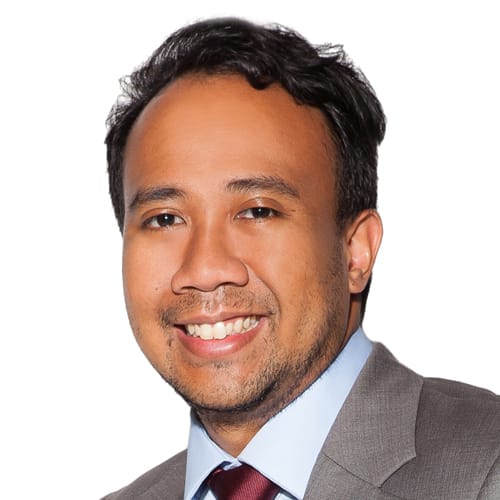IN FOCUS: Alleged ‘double standard’ treatment of Palestinian, Rohingya refugees stirring debate, concerns in Malaysia
Observers are calling on the government to tackle xenophobic sentiments against refugees and allow them access to formal education and employment.
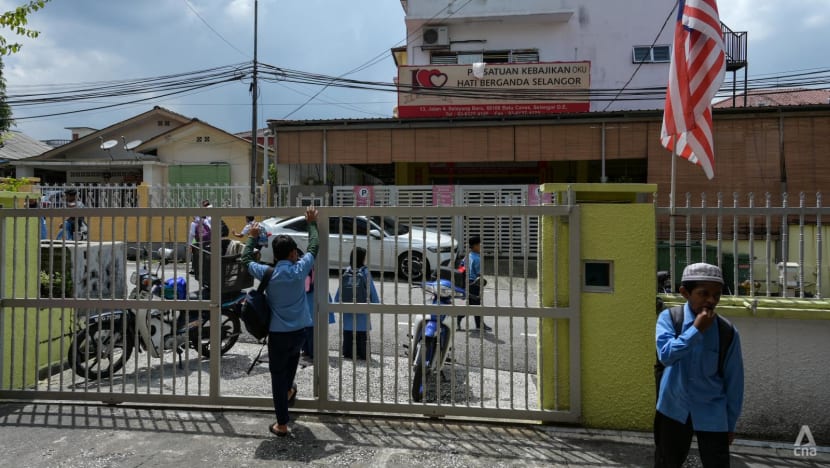
Refugee children after class at a non-governmental organisation in Selayang, Selangor. (Photo: CNA/Fadza Ishak)

This audio is generated by an AI tool.
KUALA LUMPUR: The TikTok video is simple and straightforward. Mr Sophian Mohd Zain faces the camera and goes on a three-minute rant about Rohingya refugees in Malaysia.
“They came as illegal immigrants, then they stole citizens’ rights,” Mr Sophian said in the video posted on Jun 2, accusing these refugees of using their United Nations Refugee Agency (UNHCR) card to live in Malaysia “for as long as they wish”.
Many netizens in the comments section supported his rhetoric. “It is because Malaysia enables them,” one replied.
A quick check of Mr Sophian’s TikTok accounts - of which he has several - reveals he has posted other videos slamming the immigration situation in the country, with some showing him speaking loudly to the camera in front of members of the refugee community.
Mr Sophian told CNA he started posting videos about Rohingya refugees in Malaysia to raise public awareness on how they seem to be living in the country for many years, when their stay is only supposed to be temporary.
“The government should immediately engage with UNHCR and urgently send these refugees to a third country,” the 49-year-old businessman said.
Other negative comments on social media about Rohingya refugees in Malaysia often follow a few common threads: They are running small businesses illegally, eating into the country’s jobs and resources, and constantly growing in number.
Mr Sophian rejected suggestions that his videos were xenophobic, saying that those who accuse him as such were putting “humanitarian rights before the rights of Malaysians”.
“When Rohingya refugees work and do business, they are already snatching at the rights of locals,” he said.
In contrast, a search for “Palestine refugees in Malaysia” on TikTok does not turn up such negative sentiments. The videos usually centre around Malaysia’s support for the Palestinian cause, and informal interviews with Palestinians living in Malaysia.
At least two Reddit threads have called out what appears to be a difference in how Malaysians perceive Rohingya and Palestinian refugees. “Why do Malaysians put so much effort into helping Palestinians, when in your own region, the Rohingya … faced a considerable amount (of) xenophobia in Malaysia” one asked.
Activists have taken notice too. Ms Lubna Sheikh Ghazali of Asylum Access Malaysia said the country championed the Palestinian cause but seemed to have “double standards” when it came to Rohingya refugees.
“We seem to have collective amnesia and are selective about who deserves protection,” she was quoted by Free Malaysia Today as saying at a human rights forum on Mar 19.
According to UNHCR figures as of May this year, Malaysia hosts about 189,340 refugees and asylum-seekers.
When someone crosses an international border seeking safety, they often need to apply to be legally recognised as a refugee, which in Malaysia’s case is indicated by the possession of a UNHCR card.
Asylum-seekers are people who intend to request for international protection, or are awaiting a decision on this request. Not every asylum-seeker will ultimately be recognised as a refugee.
Some 88 per cent of refugees and asylum-seekers in Malaysia are from Myanmar, including around 109,230 Rohingyas. The remaining are from 50 other countries, including Pakistan, Yemen, Somalia and Syria.
There are at least 620 Palestinian refugees and asylum-seekers in Malaysia, according to UNHCR figures, although some reports have indicated there could be as many as 2,500 of them in the country, with 30 per cent of these being students.
Despite that, Malaysia is not a signatory to the 1951 UN Refugee Convention and its related 1967 protocol, meaning refugees cannot work legally or go to government schools.
Instead, refugees are considered undocumented or illegal migrants under the Immigration Act, and depend on non-governmental organisations (NGO) such as the Malaysia-based Refugee Emergency Fund for financial aid.
While the UNHCR card provides a 50 per cent discount on foreigner fees for refugees receiving treatment at public hospitals, it does not offer any further financial benefits.
DIFFERING TREATMENT
But as the Israel-Hamas war erupted in Gaza near the end of 2023, a bipartisan parliamentary group on refugee policy called on the government to issue a “Special Pass” for all Palestinians in Malaysia to allow them temporary stay and work.
Malaysia’s government - a long-time supporter of the Palestinian cause - then said it would cover the study fees of Palestinian students at public universities, while those studying at private institutes would receive discounts of between 10 to 100 per cent.
On the other hand, a 2023 initiative to allow Rohingya refugees to study at the International Islamic University of Malaysia was made possible only through a grant from the Qatar Fund for Development. Meanwhile, authorities’ raids on illegal Rohingya settlements and businesses are prominently highlighted in the media.
Dr Benjamin Loh, a senior lecturer in media and communication at Taylor’s University, told CNA that Palestinians in Malaysia are not perceived as refugees - despite their official status as such - but as educated people who will one day return to the Middle East to fight for their land.
“But for the Rohingyas, there is this rhetoric that they are considered a low-class type of migrant,” he said, arguing that unlike the Palestinians, Rohingya refugees are seen as stateless people who ran from their country.
“So, they are considered to add very little value as they only work in low-wage types of jobs. As a result of that, there is this sort of a very xenophobic view towards them, because they’re not seen as being beneficial to the country,” said Dr Loh.
On May 24, the UN human rights office warned of “frightening and disturbing reports” about the impact of new violence in Myanmar’s Rakhine state, pointing to new attacks on Rohingya civilians by the military and an ethnic armed group fighting it.
A spokesperson for the office cited the burning of the town of Buthidaung, as well as air strikes, reports of shootings at unarmed fleeing villagers, beheadings and disappearances.
A 2022 study on the Malaysian public’s stereotypes of refugees in the country, conducted by researchers from the Asia School of Business, suggested that physical appearance also plays a part in the difference in perceptions.
Dr Melati Nungsari, an associate professor of economics at the school, said while focus group participants were asked to share their thoughts about refugees in Malaysia in general, some of the participants started referring to looks.
A total of 47 participants “widely sourced” from the general Malaysian public were interviewed across six sessions. Common negative stereotypes include the participants saying that refugees commit crime and are a burden to others.
“Sometimes they'd say, ‘This group, because they're fair, they're somehow better human beings. Because this group is darker, therefore, they're not so good and they're dirty,’” Dr Melati said while sharing preliminary findings of the study at a refugee conference on Wednesday (Jun 12).
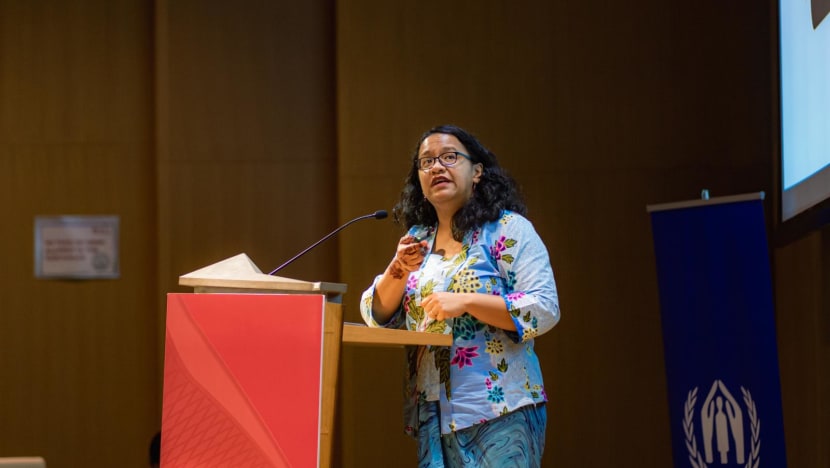
Dr Loh echoed the study’s findings, noting that Middle Eastern refugees in Malaysia, with their fairer skin and blue eyes, are seen as more valuable to the country.
“There's prestige to hosting such refugees, but not refugees who are dark-skinned and of that sort, even though everybody in this story is technically Muslim,” he said.
Some netizens on the Reddit threads have attempted to justify the difference in perception between the Palestinians and the Rohingyas.
One user said the Rohingyas were “economic refugees” unlike the Palestinian “political refugees”, although it has been widely reported that both groups are essentially fleeing persecution at home.
The user also wrote that Palestinian refugees, after finishing their education, will “go back to their country to serve their people”. This is in contrast to the Rohingyas who wish to “stay forever” and “have dozens of kids”.
DISPELLING MISPERCEPTIONS
Rohingya community leader Rafik Shah Mohd Ismail, 48, told CNA that many Rohingya refugees in Malaysia prefer to be resettled in a third country that grants asylum-seekers permanent stay, like the United States, Canada or Australia.
But the process could take years as UNHCR must first filter out a large number of refugees amid a limited number of spots in these often unwilling countries, he said.
“Some of the Rohingya refugees have been here for 20 to 30 years without getting it,” he said, noting that only those in “extreme difficulty” will get accepted.
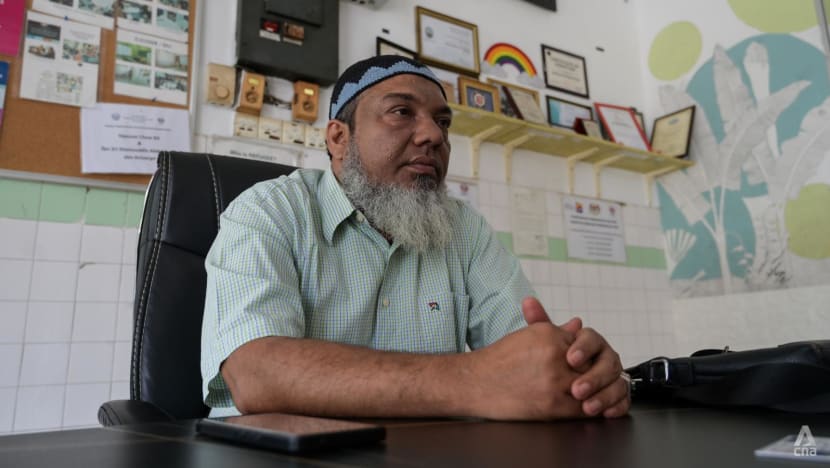
In 2017, UNHCR made only 2,379 resettlement submissions for refugees in Malaysia, with 2,061 of them successfully resettled.
UNHCR said it assesses refugees’ needs and refers them for resettlement in close collaboration with the governments of resettlement and host countries, NGOs and civil society actors, and the refugees themselves.
“Only a small number can be resettled, so UNHCR prioritises those with urgent or emergency protection needs and those who have been in long-term displacement,” it said.
In January, Malaysia urged the UNHCR to expedite the resettlement of refugees and asylum-seekers living in the country, citing the “principle of burden and responsibility sharing”.
A 2019 report by Malaysia’s Institute of Strategic and International Studies stated that Malaysia has carried a bigger burden and provided more opportunities to refugees than some countries that are signatories to the UN convention and protocol.
The report for instance named Australia and Japan, which are “notorious” for their stringent policies on migrants and asylum-seekers.
In 2014, only 6.6 per cent, or 13,768 people in Australia’s entire permanent migration programme was permanently settled on humanitarian grounds, while Japan rejected 99 per cent of asylum applications it received in 2015, the report noted.
Mr Rafik also dismissed the notion that the Rohingyas were economic refugees, pointing out that many of them owned fishing boats and swathes of farmland back home before they were threatened with torture and murder and had their villages burnt down.
In fact, many of them would prefer to return to Myanmar if their safety could be guaranteed, he said, warning that the current situation remains extremely volatile. “Some have tried going back in secret but ended up getting killed,” he added.
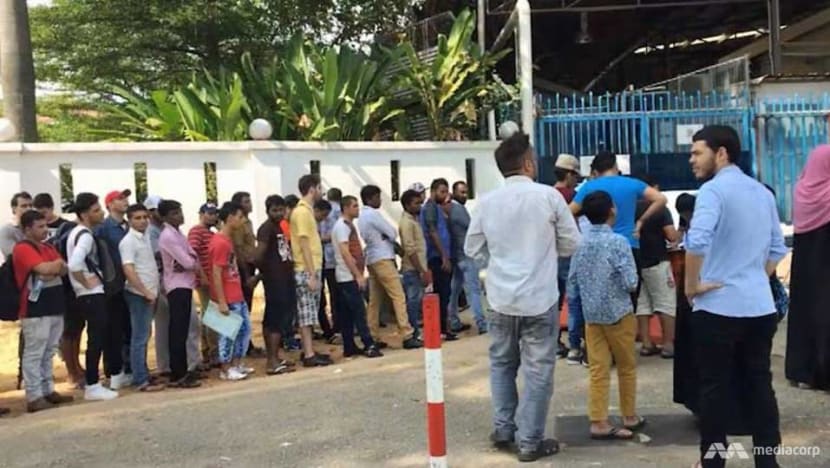
Mr Rafik attributed the differing treatment of Rohingya and Palestinian refugees to how the latter’s conflict is covered widely in mainstream and social media, as opposed to the patchy flow of information coming from Myanmar.
“Therefore, sympathy here tilts towards the Palestinians,” he said. “What Malaysians don’t know is that (the situation in Gaza) is almost identical to what is happening in Myanmar.”
But Mr Rafik refused to call it double standards and to blame the Malaysian government, saying that the country has accepted the Rohingyas and has every right to decide how to handle the community in accordance with its laws.
“I just ask for a little empathy and understanding from locals,” he said, pointing out that Rohingyas in Malaysia could be seen as dirty as they can usually only afford to live in overcrowded homes, and that they still needed to make ends meet even though they cannot work legally.
“We are just refugees; we don’t want to be a burden to the locals.”
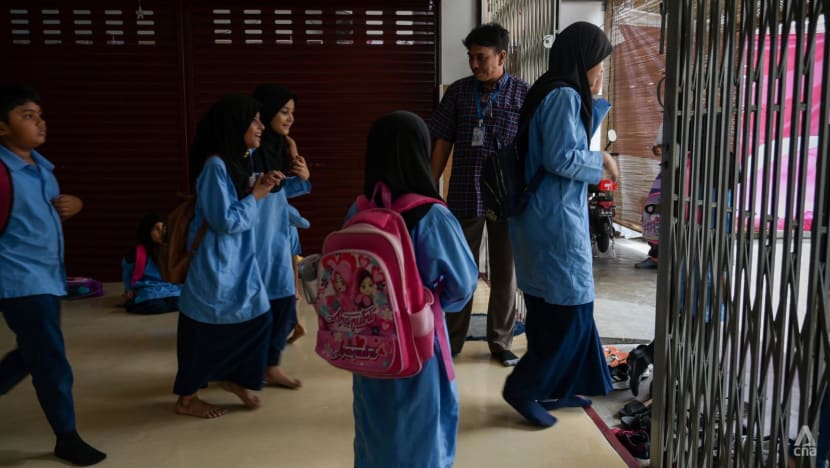
Mr Charles Santiago, a former Member of Parliament (MP) and chairman of the Association of Southeast Asian Nations (ASEAN) Parliamentarians for Human Rights, acknowledged the “racism” of some locals towards Rohingya refugees.
Palestinians are “quoted very positively” in the media, while the Rohingyas are sometimes labelled as “dirty and filthy”, he told CNA.
Mr Santiago said both Palestinians and Rohingyas are refugees who are escaping persecution and should be treated the same way.
“Rohingyas are all by and large okay. The local community should support the Rohingyas, which is what happened many years ago. And now they have turned against them,” he said.
“This is something the government has to address before it becomes a very real problem.”
REAL-WORLD CONSEQUENCES
There are also signs that the same problems are festering in local sentiments towards Palestinian refugees.
Dr Loh from Taylor’s University co-authored a study of social media comments that suggested Malaysians’ support for the Palestinians appeared to be rhetorical or limited.
Data was collected from three social media sites - X, Lowyat.net, and cari.com.my - between Oct 7 and Dec 6 last year.
Palestinian support in Malaysia, the study found, stopped short of accepting more Palestinian refugees and according them rights to live and study in the country.
“The core of their argument was that they supported the Palestinian fight to protect their homeland and, thus, accepting Palestinians as refugees would be counter to that goal,” the co-authors wrote in a Fulcrum post published in February.
“They argued that if Palestinians were allowed to become refugees, they would be no better than the Rohingya.”
Before the COVID-19 pandemic, Malaysia saw considerable support for the Rohingyas, with political parties organising large rallies advocating for their cause.
This came about after the largest exodus of Rohingya refugees began in August 2017 following a massive wave of violence that swept through Myanmar’s Rakhine state.
But at the height of the pandemic, the Rohingyas were accused of spreading the coronavirus, while hate speech calling for violence against Rohingyas and other undocumented migrants spread widely online.
When congregation sizes were restricted, a mosque in Johor put up a controversial sign saying Rohingyas were not welcome. A Rohingya activist was also falsely said to have demanded Malaysian citizenship, attracting widespread anger and death threats.
The activist, Mr Zafar Ahmad Abdul Ghani, said he continues to feel unsafe living in Malaysia and urged the authorities to take action against online hate speech targeted at the Rohingya community.
“I hope Malaysia can engage its ASEAN partners to find a solution for Myanmar,” he told CNA.
Malaysia Prime Minister Anwar Ibrahim recently said that ASEAN member states need to unite in facing the crisis in Myanmar, considering the death toll there and the conflict’s impact on the region.
While speaking at the 37th Asia-Pacific Roundtable in Kuala Lumpur on Jun 6, Mr Anwar also gave hints that he will push for ASEAN to be tougher on its member Myanmar, where pro-democracy guerrillas and ethnic minority armed forces are battling the country’s military.
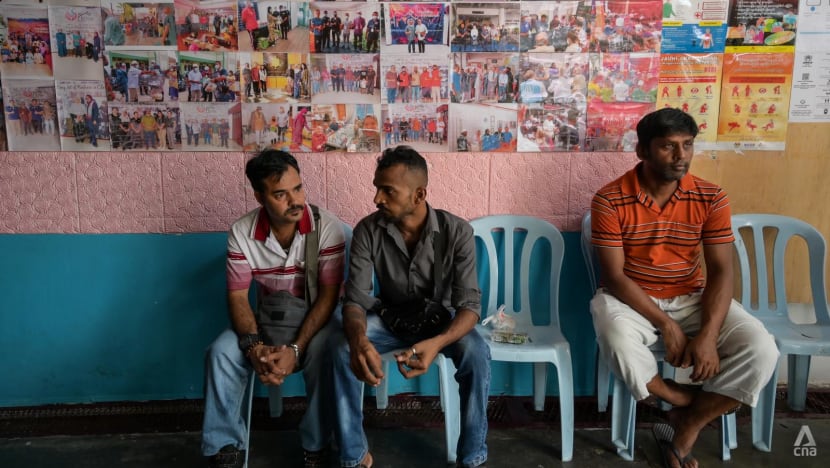
Dr Muhammed Abdul Khalid, a research fellow at the Institute of Malaysian and International Studies, said warm local sentiment towards the Rohingyas turned due to various socio-political factors, including the pandemic and economic pressures.
“There is a risk that sentiment towards Palestinian refugees could follow a similar trajectory if not addressed proactively,” he told CNA.
“To prevent this, it is crucial to foster continuous public education and awareness about the plight of all refugees, emphasising their humanity and potential contributions to society.”
Dr Melati at the Asia School of Business said her study showed that while participants had xenophobic sentiments towards refugees, they also felt conflicted by positive thoughts, like how refugees were forced into their predicament and continue to be exploited in their host countries.
The study found a roughly equal number of sentiments coded as positive and negative stereotypes.
“So there's a lot of conflict, which to me shows quite a bit of possibilities for interventions,” she said, expressing hope that the general public could change their minds about refugees.
“I was thinking about specific media campaigns to try and encourage not only positive portrayals (of refugees), but volunteering or something that gets people more into the refugee community is something that could really help in trying to reduce the negative stereotypes towards refugees.”
LETTING REFUGEES WORK LEGALLY
One way the government could play its part, observers said, is to introduce policies that allow refugees to work legally.
The former MP Mr Santiago said refugees provide readymade alternatives to migrant workers in certain sectors, noting that some employers already prefer hiring refugees as they do not need to fork out extra accommodation fees.
“The government needs to engage the local refugee community and conduct an analysis in terms of what skill sets they have together with what we need,” he said, pointing out that some refugees can work in skilled jobs as well.
Mr Santiago said the government should also try convincing locals that refugees can contribute to the country by working legally in a system that does not compromise national security.
“If you don’t try, you won’t know,” he added. “It’s got to do with a law-and-order issue, but it’s time to look at refugees in Malaysia as a development issue.”
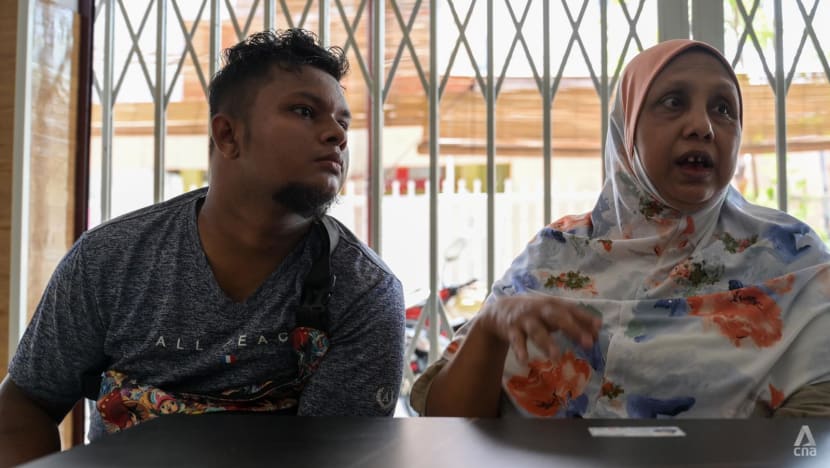
Malaysia’s National Security Council, which handles refugee policy, has amended its directive that provides for the management of refugees and asylum-seekers in Malaysia.
“Under this new directive, major changes have been approved including registering the refugees into (the) national system, access to employment opportunity, healthcare and also education,” said a government response issued in October 2023 and published by the Committee on the Elimination of Discrimination against Women.
The response did not elaborate on the “major changes”, while Mr Santiago said the government has yet to outline policies based on the new directive “openly”.
Malaysia’s Home Minister Saifuddin Nasution Ismail said in March that the government will conduct a comprehensive study with UNHCR to allow refugees to work in specific sectors of the country.
Human Resources Minister Steven Sim told parliament on Mar 26 that his ministry has the capacity to run training programmes that can help refugees upskill, in preparation for formal work only in sectors "not favoured by locals" and dominated by migrant workers.
"Therefore, job opportunities for the local workforce will not be affected," he said.
Despite that, Mr Sim said any formalisation of employment for refugees will first depend on the issuance of official registration documents, a security initiative aimed at monitoring their whereabouts in the country.
The Home Affairs ministry is still working on this initiative together with the Immigration Department, he said.
"Any implementation of training programmes for refugees will be done on a government basis and in accordance with prevailing laws," he added.
"At the same time, if the government agrees to this programme, it needs to consider the implication of incurring extra expenditure, given that the current training budget is set aside for Malaysian citizens only."
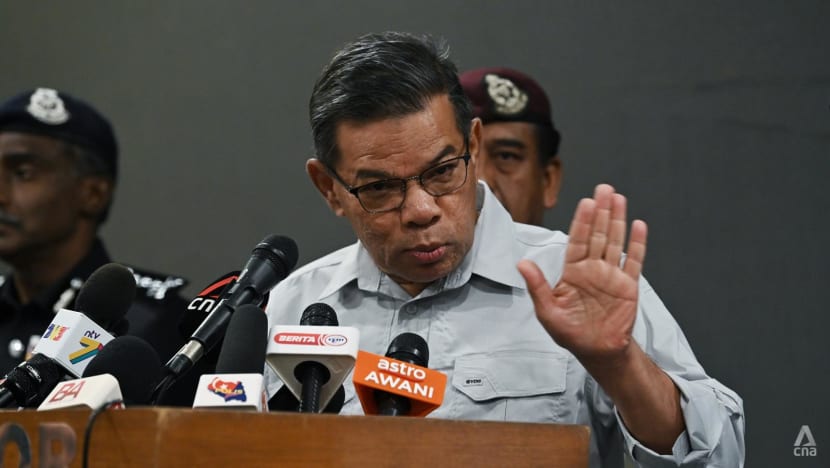
Dr Loh feels the government is reluctant to give the sizeable Rohingya population employment rights, or evict all of them, for fear of pushback from locals or the international community, respectively.
He cited how during the pandemic in 2020, the Sabah government scrapped a plan to issue a single identity card for foreigners living in the state as part of security efforts to monitor undocumented migrants, citing complaints from Sabahans who did not want to see it implemented.
Sabah has long grappled with the issue of illegal migrants, mainly from the Philippines and Indonesia.
“There was no pathway to citizenship for any of them, but it was met with so much public backlash that they just abandoned it entirely,” Dr Loh said.
“There is a sense that the government is just so afraid to present anything that is seen as legalising or making this entire situation more formal.”
Dr Muhammed said the government needs to have the political will to develop a refugee policy that not only respects human rights but also benefits the country's economy.
Misconceptions among locals that refugees will take away local jobs, commit crimes or encourage other refugees to come to Malaysia, are often fueled by irresponsible political rhetoric and not based on facts, he said.
“Furthermore, studies have demonstrated that legalising refugees and allowing them to work can generate positive economic impacts for the host country,” he said.
“Refugees contribute to the economy by filling labour shortages, paying taxes, and stimulating demand for goods and services. These contributions can lead to job creation and economic growth, benefiting local residents as well.”
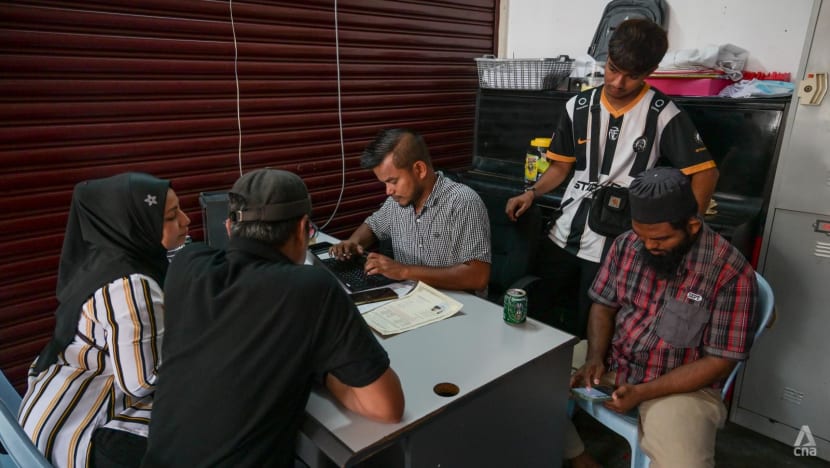
Mr Abdel Halim Mansour Abu Namous, a Palestinian refugee who arrived in Malaysia in 2014, hopes the country introduces laws that facilitate employment for refugees.
“I hope that the government recognises the rights of refugees in general so that we can live in stability,” said the 41-year-old, who runs a home-based business serving Palestinian food.
“Unfortunately, here there is no future for refugees. We only struggle and strive to work for survival.”
When asked what he feels about the negative sentiment towards Rohingya refugees, Mr Abdel Halim said he would rather not speak about this.
“Generally speaking as refugees, it’s sensitive and we could be in danger,” he said.
Mr Abdel Halim said he interacts with locals with “caution and morals” as they are the “owners of the country”.
He plans to remain patient until he finds a solution for the future of his family, as he lamented the state of his homeland amid the current war.
“In the end, I say thank you Malaysia for everything.”








